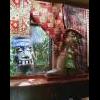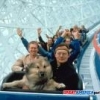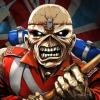Theme Park Discussion / Theme Park Academia
-
 21-June 16
21-June 16
-

 Coaster Cow
Offline
Coaster Cow
Offline
Hey all,
I made a similar topic over on TPR, but I'm posting it here too because you guys have an analytic approach to RCT that I find really inspiring. Similar to many of you, I have hopes of pursuing a career in theme parks in one way or another, but I personally lean towards academia over more vocational professions like engineering or management. Last summer, I began applying some of the architecture/planning/placemaking theory from my studies to the topic of theme parks, from which I have been producing essays summarizing my ideas. I'd love to get feedback on my work or start some discussions on the place of theory in theme park design!
For a start, here are my pieces on Wayfinding in Themed Design and the Historical Development of Themed Space. Neither claims to be comprehensive assessments of their topics but more of explorations using a specific author or reading as an anchor. Both are hosted on my personal site that has links to several other pieces I have written as well if you are interested!
-

 G Force
Offline
G Force
Offline
The first essay looks like something me and nin talk about all the time when looking at parks. Really give you a different understanding of parks that can really improve your parkmaking and overall view of work.
I'll try to give them a read sometime soon, they both sound really interesting.
-

 Liampie
Offline
Liampie
Offline
Interesting. I always like (pseudo-) academic takes on our hobby. I read the piece on Weenies and though it's well written it's not super powerful; it's fairly superficial. You're concluding the piece with what you think constitutes good Weenie design. The weenie is a design principle used by Disney Parks that only take up a small fraction of theme parks in the world, and they are different from most parks in that they're planned to a very high degree. Therefore the Weenie's relevance to the entire theme park sector might be limited. I think it would've been better if you looked at other parks as well, especially the ones that have grown more organically, comparing different approaches, and concluding with some statements on what constitutes good theme park wayfinding in general. I think it would help you if you formulated some research questions to increase the academic value. The question I would ask in the first place is "how does wayfinding in themed environments differ from wayfinding in urban environments?".
I skimmed through the Dark Ride article and the first paragraph mentioned this:The Dark Ride: a Contemporary Definition
A dark ride possesses three core characteristics:
- A narrative arc
- Physical movement through a space
- Sense of reality or immersion
Where did you get this from? It seems really limited and flawed in my opinion. Many dark rides don't have a narrative. Meanwhile walk-through rides tick all the three boxes (I think; immersion is very very arbitrary). Didn't read the rest because I have to go away from the computer now.
Anyway I'm looking forward to reading more, keep us updated. And keep writing!
-

 Version1
Offline
Version1
Offline
I would say every dark ride has a narrative, but it's often very subtle to the point where people don't really notice that there is a narrative.
-

 Coaster Cow
Offline
Coaster Cow
Offline
Thanks for the replies guys!
Liam I appreciate the feedback. The question of how wayfinding differs between theme parks and urban environments is certainly one I hope to attack. My initial thoughts is that it would take true empirical research within park environments, which is something I currently don't have the resources to initiate, but is definitely along the lines of where I think a true academia for the industry could go. So at the moment, I plan on trying to synthesize existing academic research with informal knowledge bases on theme parks, even with the inherent flaws that may arise from that sort of transferring of ideas. My focus is mainly at introducing questions and making connections more so than necessarily answering them at the moment, until I find a means of funding etc. I'd recommend reading my history pieces on the site, I think they're a little more concrete than some of the other essays that clearly could use some empirical tests to strengthen up.
As for the dark ride definition, my partner and I on that project recognized that we would not be able to come up with an authoritative definition of what constitutes a dark ride. Instead, we sought to create a lens through which to examine theme park history, in this case our shaky dark ride definition, to illuminate how trends in theme parks reflected trends happening in society broadly. Additionally, we were presenting to a university crowd with no background or knowledge on theme parks. With the disclaimer then of not being comprehensive or definitive, we wanted to counter some existing literature on dark ride history that ignores what we considered to be extremely important milestones, particularly on the earlier end. Hopefully if you get the chance to read the whole piece it may redeem itself that way.
I'd love to hear any ideas you guys have on where I could go further!
 Tags
Tags
- No Tags